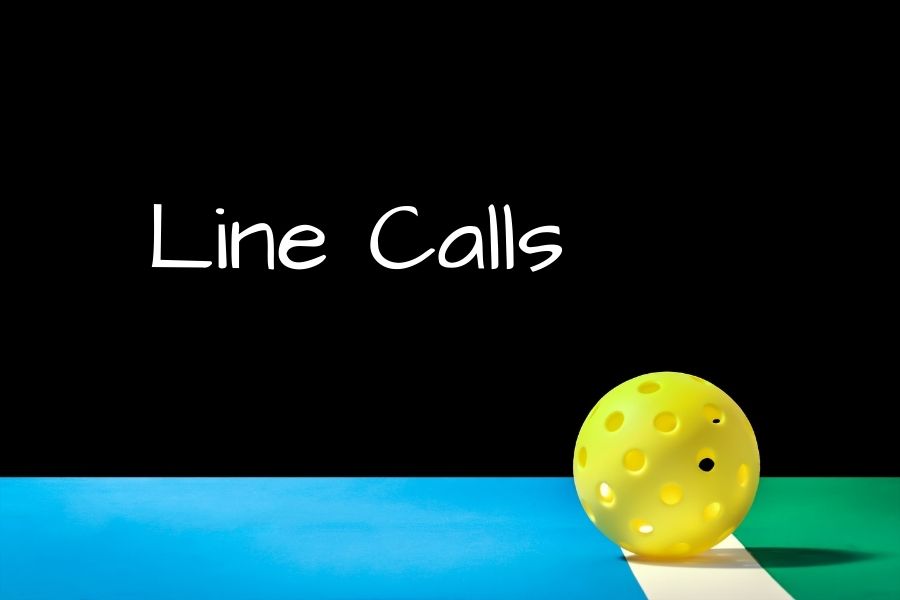Line Calls in Pickleball | In or Out?

Explaining How Line Calls Work in Pickleball
Line calls can sometimes be hotly contested in pickleball. It’s important to know how they work and function, however, and how they’re determined. The rules for a line call are simple: if it touches the line, it’s in the zone, and if it does not, it’s out.
Where do the Line Calls Start and End?
Lines in pickleball are similar to lines in basketball, tennis, baseball, or other sports. The lines themselves define dimensions–the playing area, essentially. If something is outside, it’s out of bounds. Thus, by that logic, line calls, and where the ball lands, function the same way. It shows that the court or zone is about to end, and if the ball lands outside that area, it’s out of bounds.
Is it in, or is it out?
A pickleball doesn’t compress, so it’s a bit different than calling whether or not a tennis ball is in the court or not, for example. In pickleball, you have to call the small area where the ball strikes, and determine whether or not it’s in the court or not.
If the ball is hovering over the line, be careful of that, too: if no part of the ball is touching the line, it’s out, and not in.
The kitchen line is another thing you have to be careful of. It extends all the way to the sideline and up towards the net. Any hit on the kitchen line (or inside the ‘kitchen’, the non-volley zone near the net) is a fault.
Main Rules
If the ball touches the line, it’s in. There’s some concepts you should know and keep in mind, when making line calls in pickleball.
It’s your responsibility to make calls on your side of the court. If there’s any doubt about whether the ball is in, it’s automatically declared in. This is called the benefit of the doubt.
Another concept is a dead ball. If a ball lands out of bounds, even if you hit it after, it’s a dead ball and out of play.
Remember your ethics, too: don’t try to make calls that benefit you. Be fair in your rulings. If there’s any doubt, just call the ball in. Be ethical.
If there’s any conflict or argument between you and your partner whether the ball was in or not, it’s in. This is why it’s important that one person be in charge of making line calls.
If you get a bad line call, unless you’re in a tournament, there’s not much to do about it. However, if this is official play, then you may be able to have a referee judge whether or not it was actually in.
Wrapping up
These rules should be able to help you understand line calls in pickleball.
It may be hard to keep track of all of them, but as you play, it should be easier to understand where and when they apply.



No Comments
Sorry, the comment form is closed at this time.